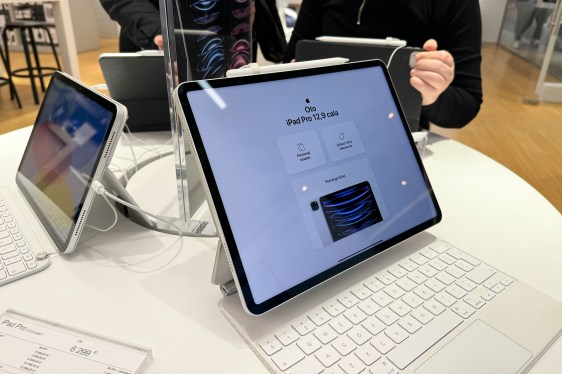Here is the rewritten version of your text:
# Apple Announces Third-Party App Stores on iPad: A Step Toward Enhanced User Experience
## Introduction
The Apple ecosystem has long been a cornerstone of innovation and user satisfaction, but recent developments have raised significant questions about its future. With the announcement of third-party app stores for iPad, Apple is taking a bold step that could redefine how users interact with their devices. This article delves into the implications of this move, explores the regulatory framework behind it, and examines the broader impact on consumers and developers.
### Background on Apple's App Store Strategy
Apple has long governed its own app store, ensuring compatibility, security, and compliance with its own software. This model provided a seamless experience for users but limited competition within the ecosystem. In recent years, however, frustration among developers and users alike has led to calls for change. Third-party app stores could bring new opportunities for innovation while maintaining user control over what they download.
### The Regulatory Landscape
The European Union's *Digital Markets Act (DMA)* represents a significant regulatory shift aimed at leveling the playing field for all market participants. By ensuring equal access and regulation, the DMA promotes competition and consumer welfare. Apple's announcement aligns with EU regulations, which now mandate that third-party app stores operate within this unified framework.
### Apple's Decision: A Shift in Control
Apple's decision to introduce third-party app stores on iPad marks a pivotal moment for both the company and consumers. While critics argue it limits control over user experience, supporters believe it paves the way for greater innovation. This move could streamline distribution processes, allowing developers access to wider audiences while ensuring compatibility with Apple devices.
### Impact on Third-Party Apps
The rollout of third-party app stores will likely transform the iPad ecosystem. Users can now download apps directly from app stores that operate outside Apple's control, leading to a more vibrant and competitive market. This shift could encourage innovation by allowing developers to target specific regions or platforms without restrictions imposed by Apple.
### The Role of Epic Games: Bringing Third-Party Stores to Life
Epic Games is at the forefront of this new era, announcing its partnership with third-party app stores on iPad. With titles like *Fortnite* and *Apex Legends*, Epic has demonstrated the viability of a competitive market outside Apple's control. As more developers join this movement, the potential for diverse apps and services expands significantly.
### Web Browsers: A New Era of Accessibility
While much attention has been directed toward app stores, web browsers represent another frontier in this new era. Modern browsers have built-in security features that make them resistant to many malicious attacks, providing a secure environment for users. This inherent security makes web browsers an ideal platform for third-party apps and services.
### The Future of iPad Ecosystems
The integration of third-party app stores on iPad is likely to reshape the way people interact with their devices. By embracing competition and innovation, Apple can continue to evolve its ecosystem while respecting consumer preferences. However, this shift also raises questions about control and privacy, highlighting the need for careful consideration as the industry moves forward.
## Author Bio
### Romain Dillet: The Influencer Behind the Innovations
Romain Dillet is a tech enthusiast and analyst whose passion lies in exploring how emerging technologies shape our world. With a background in digital marketing, Romain has spent years dissecting the intricacies of app development, mobile platforms, and regulatory frameworks. His work combines deep technical knowledge with a clear-eyed perspective on consumer trends.
Dillet's expertise is evident in his latest article, which delves into Apple's strategic moves to enhance its ecosystem through third-party app stores. Known for his balanced analysis, Romain frequently explores how innovation intersects with regulation, offering insights that resonate with both tech experts and general readers alike.
Whether it's unpacking complex technologies or demystifying market dynamics, Dillet's writing provides a window into the forces shaping the future of digital consumption. His contributions offer valuable perspectives on what lies ahead in an ever-evolving industry.

